US-Russia talks held in Geneva amid tension over Ukraine
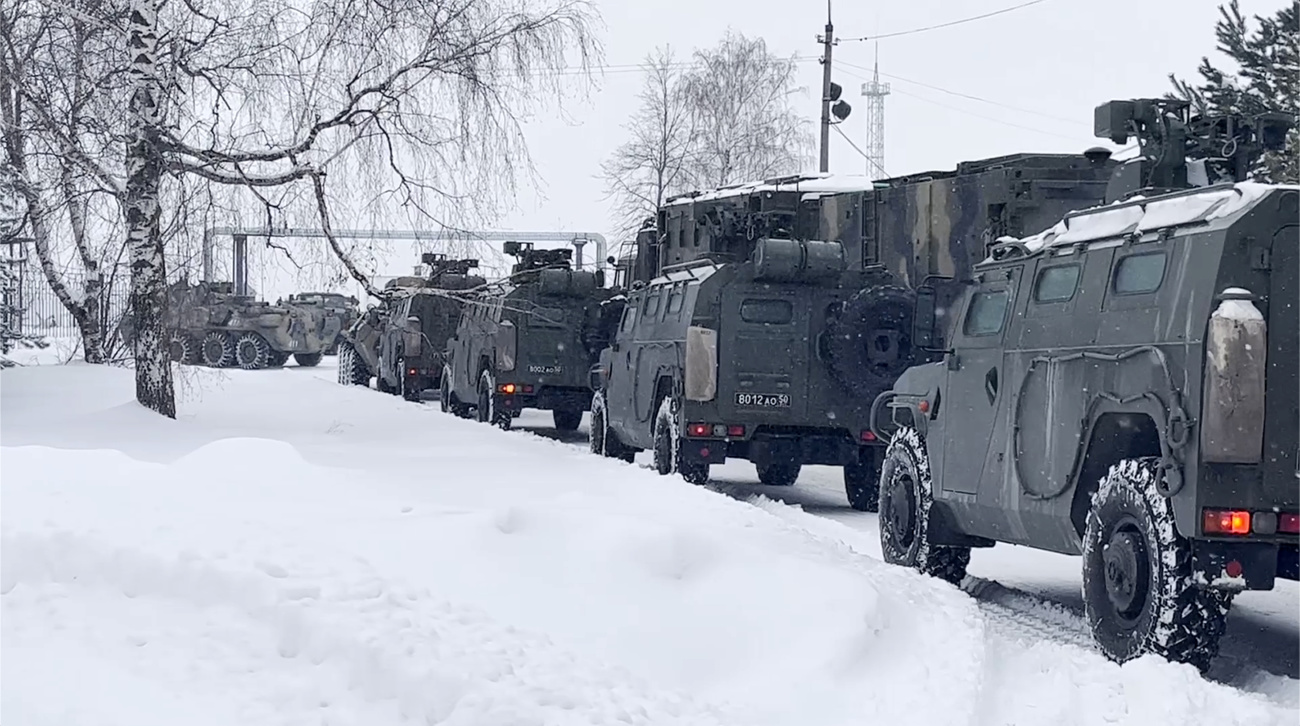
Senior US and Russian diplomats held a special round of talks in Geneva on Monday, amid tension over a Russian military build-up on the Ukraine border.
It was the third round of bilateral US-Russia talks in Geneva since US President Joe Biden and his Russian counterpart Vladimir Putin met in a highly mediatised summit in the Swiss city in June last year. The US delegation was headed by Deputy Secretary of State Wendy ShermanExternal link, while Russia’s was led by another veteran diplomat, Deputy Foreign Minister Sergei Ryabkov.
“The 1985 summit between US President Reagan and Soviet leader Gorbachev in Geneva marked the end of the Cold War, and one hopes that the upcoming talks between the US and Russia in Geneva may be just as significant,” Emilia Nazarenko, a Geneva-based Ukrainian journalist, said in an interview with SWI swissinfo.ch before the talks began. But it is likely to be an ongoing process.
Both sides had dampened expectations in the run-up to the meeting, with the US calling for Moscow to de-escalate on Ukraine and Russia saying it will make “no concessions”. A US government spokesperson told the press that there would be no firm commitments in these talks, which would be “serious and concrete” but exploratory.
The Geneva talks will be followed by a Russia-NATO meeting in Brussels on Wednesday and one in Vienna on Thursday of the Organization for Security and Co-operation in Europe (OSCE), of which Ukraine is also a member.
Sabre-rattling
Russia, which has moved nearly 100,000 troops close to its border with Ukraine, says it is not preparing for an invasion but wants the West to back off from its support for Ukraine’s government and stop the eastward expansion of NATO.
Washington has already dismissed some of Moscow’s demands as unviable. In a phone call last week with Putin, US president Biden reiterated that the US and its European allies would impose unprecedented sanctions if Russia were to invade Ukraine. Putin responded that sanctions could lead to a “complete breakdown in ties”.
Laurent Goetschel, director of Basel-based peacebuilding institute Swisspeace, said it was important that the Geneva talks could take place despite an uncertain outcome. Especially since they were face to face and part of the US-Russia Strategic Stability Dialogue (SSD) launched after the Biden-Putin summit.
“It’s important that they’re happening, as a message towards the rest of the world but also inside the respective countries,” he told swissinfo.ch. “Having a format of interaction, which is not an imminent crisis format but something happening on a more or less regular basis, is very important to ease a situation and build up a certain level of trust.”
Nazarenko, who freelances for several Russian language media and is accredited to the UN in Geneva, agrees. “One consolation is that at least there is dialogue, meetings and talks. Better an inert hostility without casualties than active hostilities and death.”
If Western military experts are to be believed, she says, the current number of Russian troops on the Ukraine border is insufficient for a large-scale invasion. But that is the fear of her friends and relatives in Ukraine and of the authorities there. She hopes that Russia is just “using Ukraine as a springboard to confront the West”.
It is of course possible that Russia could invade Ukraine, says Goetschel. But he thinks it likely that “certain concerns are voiced, threat messages are communicated, but actually the primary objective is not to prepare an invasion of Ukraine, but to obtain certain concessions on a political and diplomatic level from the West”.
More
Swiss role
Unlike the Biden-Putin summit in Geneva in June, when the Swiss president played host and the guests were welcomed on Swiss property, Monday’s meeting took place in the US embassy in Geneva. Nevertheless, says Nazarenko, “Switzerland’s neutral status, its long experience in organising and conducting summit negotiations, its multilateral diplomacy and the location of the UN’s European office in Geneva” are important factors in the choice of venue.
“Biden and Putin met in Geneva, so of course it underlines the continuity of these meetings when they take place in the same location,” adds Goetschel. “But one may also say that, in terms of East-West traditions and looking back at the period of the Cold War, Switzerland and Geneva are where many important exchanges have taken place.”
Nazarenko notes that a conference on reforms on UkraineExternal link is due to be held in the southern Swiss town of Lugano in July 2022. “I hope that by then the danger of war will have been banished forever for long-suffering Ukraine.”

In compliance with the JTI standards
More: SWI swissinfo.ch certified by the Journalism Trust Initiative
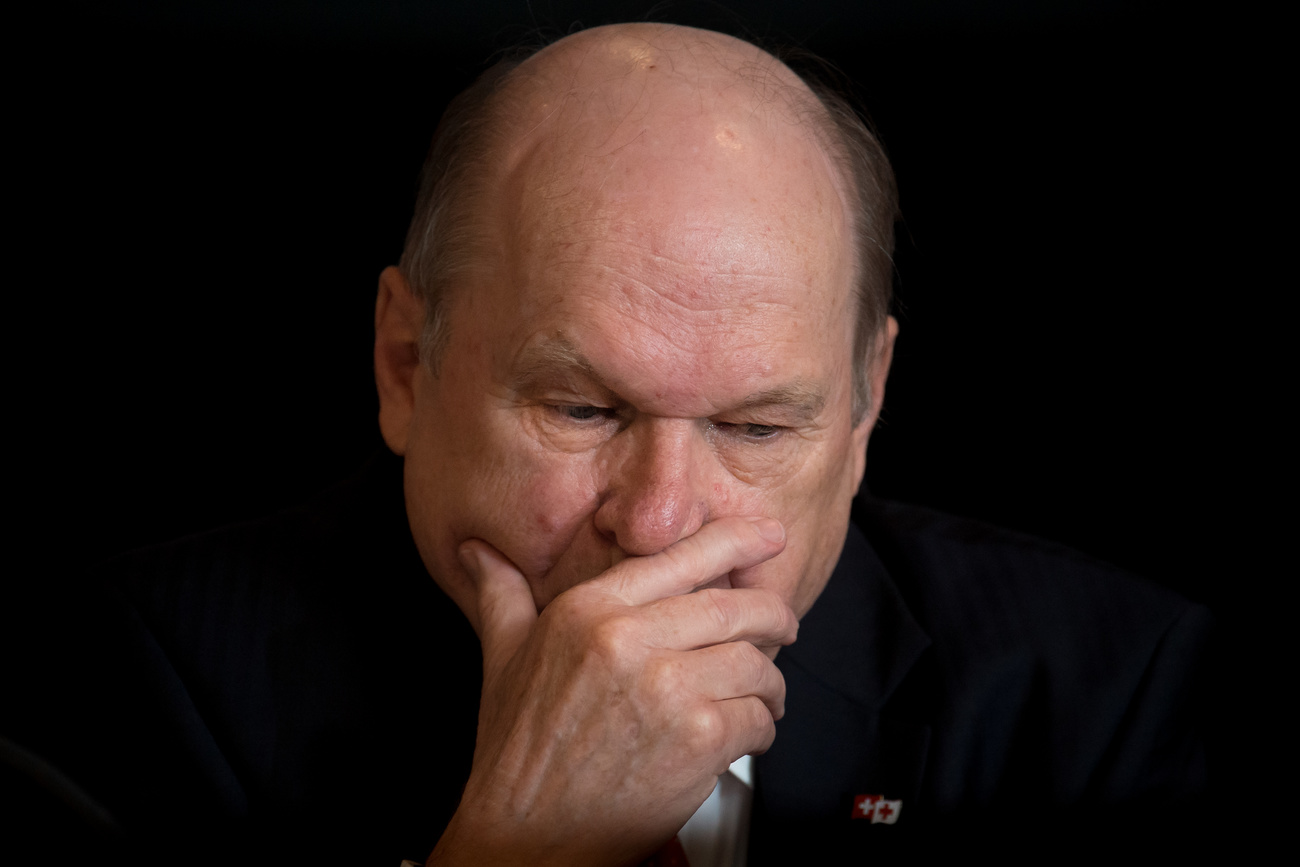
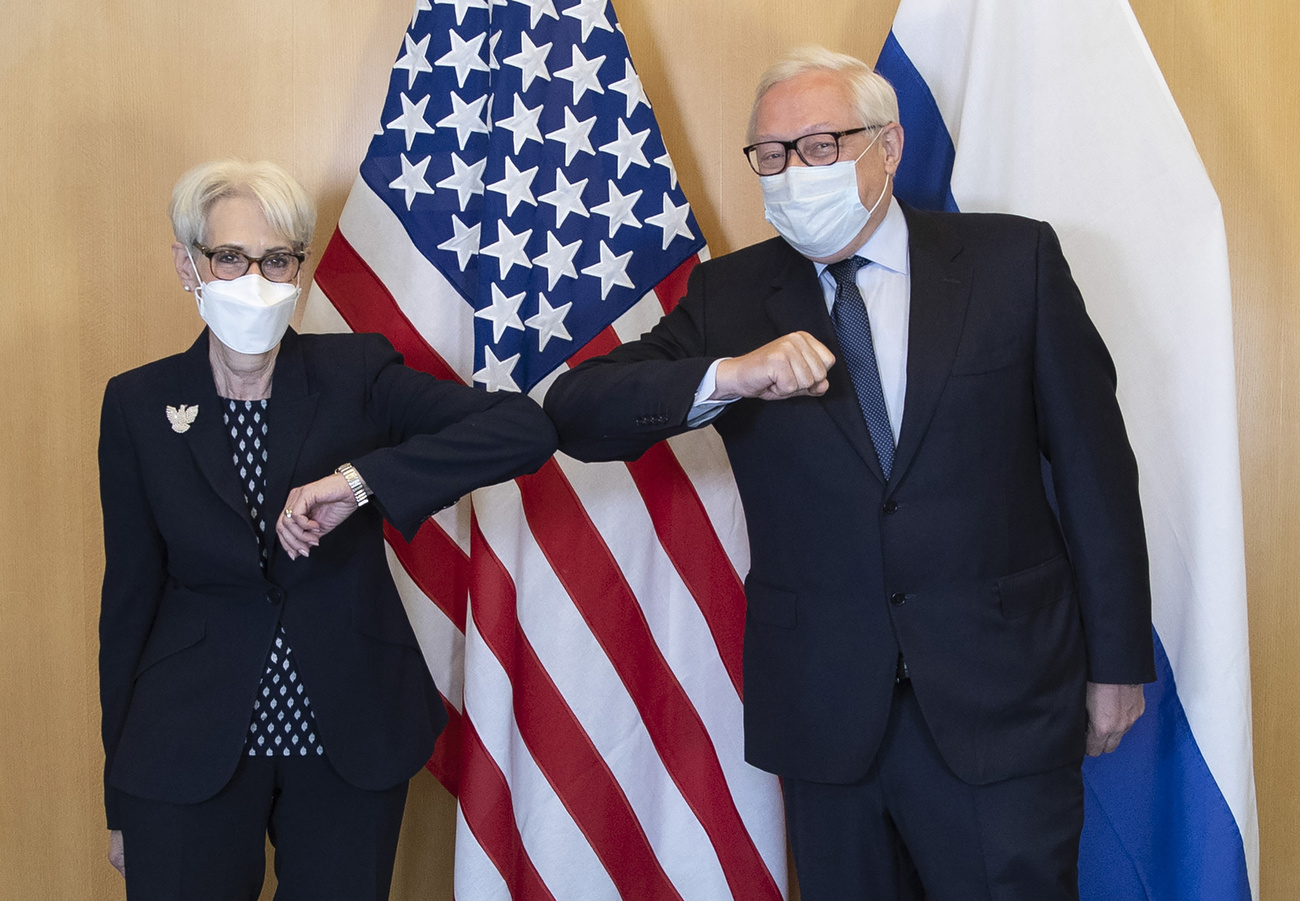
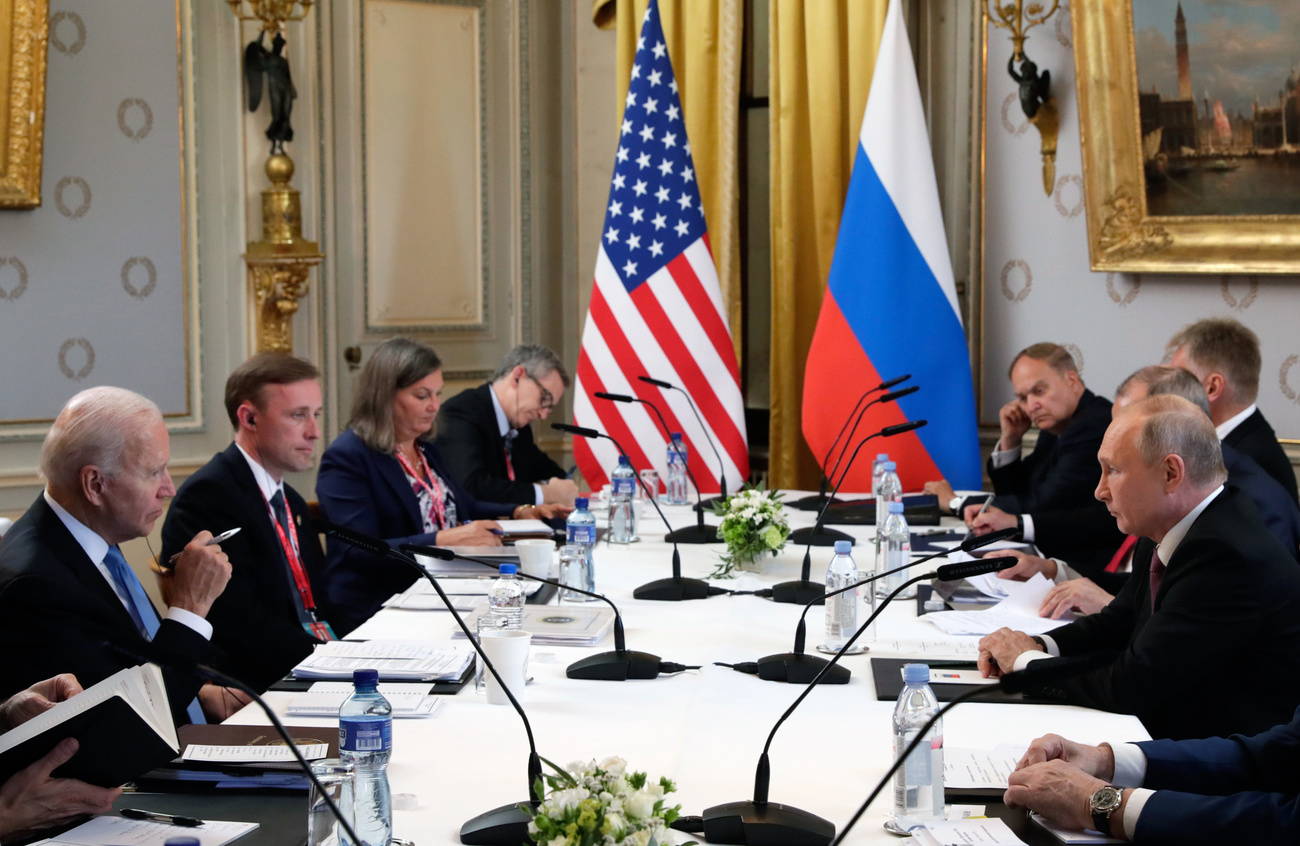
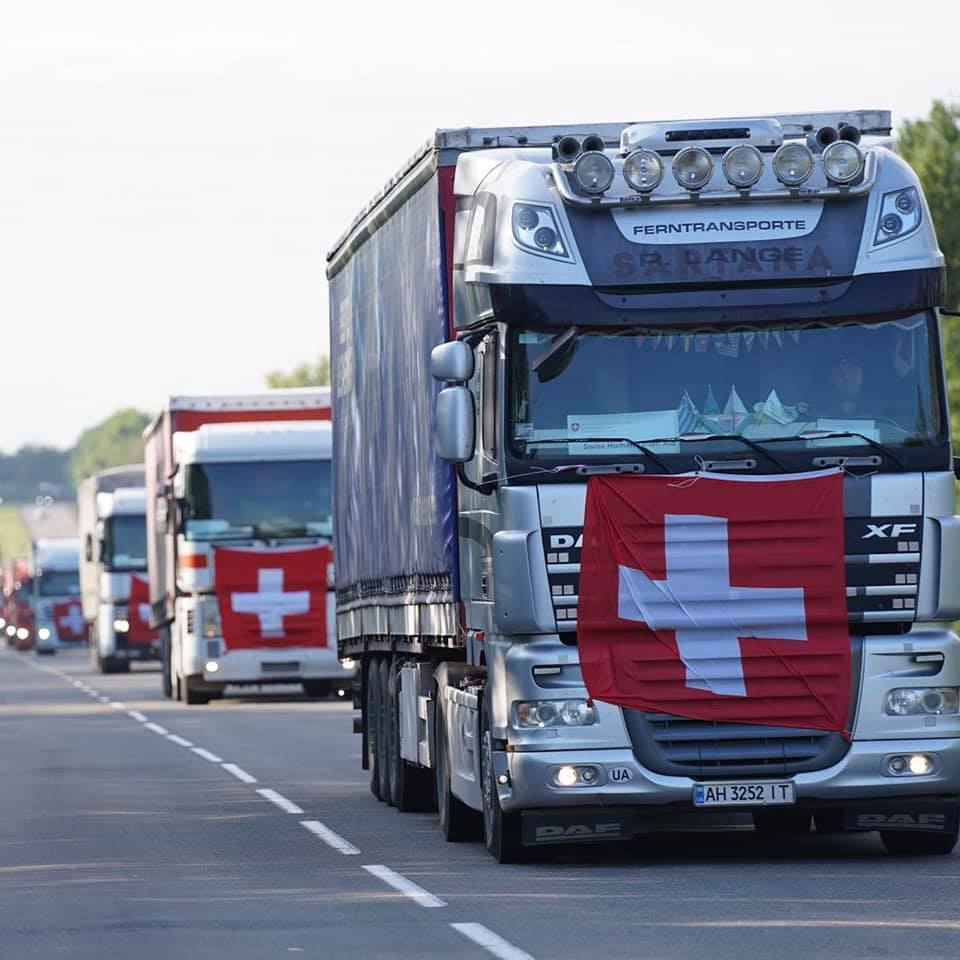
You can find an overview of ongoing debates with our journalists here. Please join us!
If you want to start a conversation about a topic raised in this article or want to report factual errors, email us at english@swissinfo.ch.